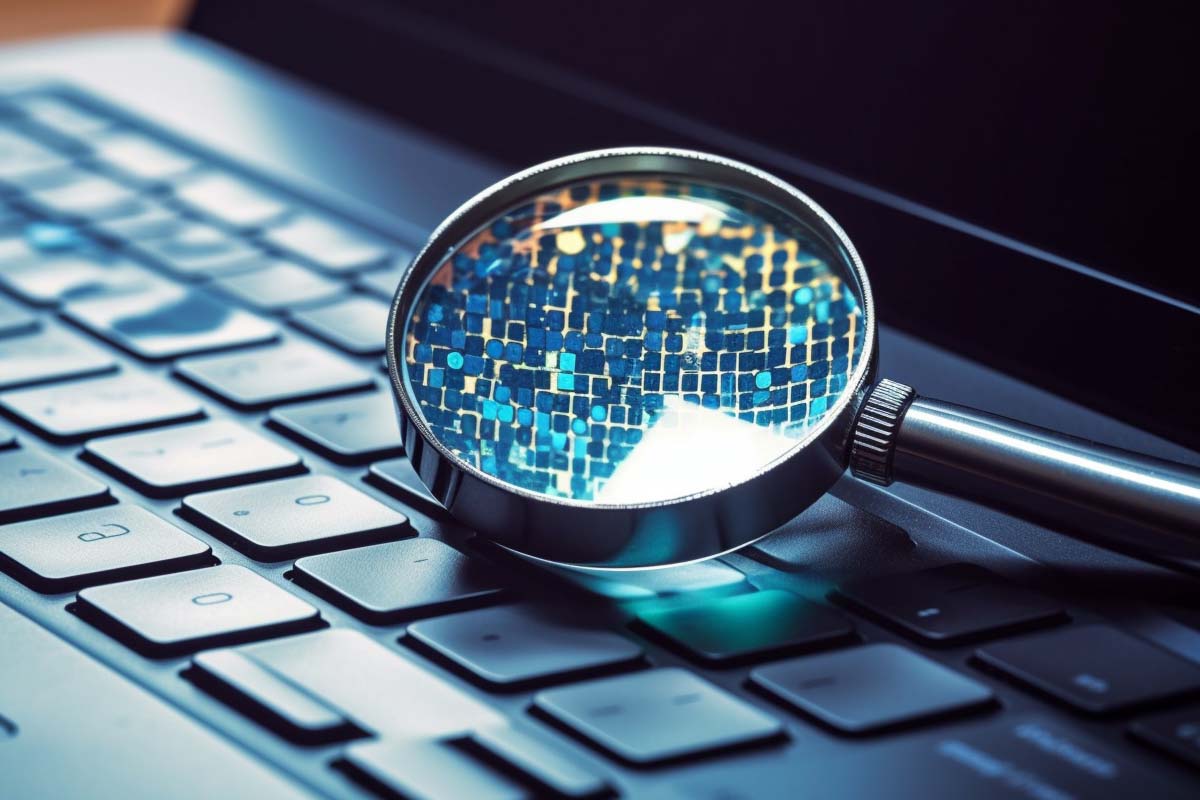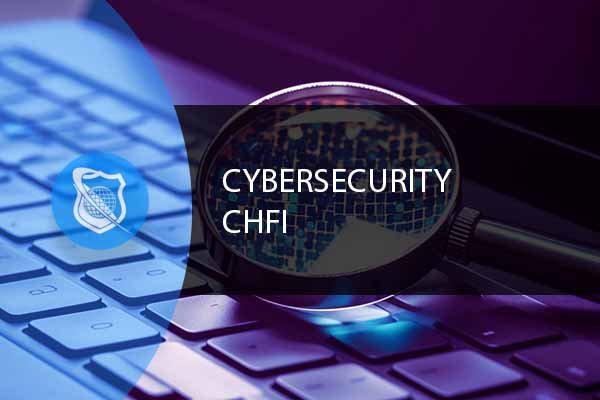What Is a Network Storm?
Definition: Network StormA network storm refers to a situation in computer networks where an excessive amount of network traffic congests the network, severely degrading performance and potentially leading to a

In the ever-evolving world of cybersecurity, computer hacking forensic investigator jobs have become a critical part of the defense against cybercrimes. With over two decades of hands-on experience in this field, I have witnessed the transformation of cyber forensics from a niche specialty to a mainstream profession. These roles are not only vital in solving complex cybercrimes but also in preventing potential threats, ensuring the integrity of digital information, and maintaining public trust in technology.
The demand for computer hacking forensic investigators has surged in recent years, reflecting the growing complexity of cyber threats and the need for specialized skills to combat them. In this article, we will delve into the multifaceted role of a computer hacking forensic investigator, exploring the qualifications, responsibilities, challenges, and future prospects of this exciting career path.
Computer hacking forensic investigator jobs are at the forefront of the battle against cybercrime. These professionals are responsible for detecting, analyzing, and mitigating cyber threats. Their work involves:
With the rise of sophisticated hacking techniques, the role of a forensic investigator has become increasingly complex and essential.

Embark on a thrilling career in cybersecurity with our CHFI Course – Computer Hacking Forensics Investigator. Master computer forensics, and fortify network integrity. Ideal for law enforcement, security professionals, and anyone passionate about cyber safety.
In my 20 years of experience, I’ve seen the evolution of tools and techniques that are now integral to computer hacking forensic investigation. Some of the key tools include:
These tools, combined with expert knowledge, enable forensic investigators to unravel complex cybercrimes.
Computer hacking forensic investigators play a vital role in various sectors, including law enforcement, corporate security, and government agencies. Some real-world applications include:
In one memorable case from my career, I was involved in tracking down a notorious hacking group responsible for a series of high-profile corporate breaches. Through meticulous analysis and collaboration with international agencies, we were able to dismantle the group and bring them to justice.
Pursuing computer hacking forensic investigator jobs requires a strong educational foundation. Typically, a bachelor’s degree in computer science, cybersecurity, or a related field is essential. Some professionals also opt for master’s degrees to specialize further.
Certifications like Certified Computer Hacking Forensic Investigator (CHFI), Certified Information Systems Security Professional (CISSP), and others are highly regarded in the industry. Continuous training and staying updated with the latest trends are also vital.
In addition to technical skills, soft skills like critical thinking, problem-solving, and communication are crucial. Being able to convey complex technical findings in layman’s terms is an invaluable asset in this field.

Embark on a thrilling career in cybersecurity with our CHFI Course – Computer Hacking Forensics Investigator. Master computer forensics, and fortify network integrity. Ideal for law enforcement, security professionals, and anyone passionate about cyber safety.
Computer hacking forensic investigator jobs are diverse, reflecting the multifaceted nature of cybersecurity. Professionals can find opportunities in various roles, including:
These roles are essential in today’s digital landscape, where cyber threats are ever-present, and the expertise of computer hacking forensic investigators is invaluable.
The demand for computer hacking forensic investigators transcends various industries, reflecting the universal need for cybersecurity. From my experience, I’ve seen opportunities in:
The versatility of skills required for computer hacking forensic investigator jobs allows professionals to work in diverse sectors, adapting to unique challenges and contributing to the broader goal of a secure digital world.

Embark on a thrilling career in cybersecurity with our CHFI Course – Computer Hacking Forensics Investigator. Master computer forensics, and fortify network integrity. Ideal for law enforcement, security professionals, and anyone passionate about cyber safety.
The salary for computer hacking forensic investigators varies widely based on factors such as experience, location, and industry. Here’s a detailed breakdown:
The salary can also vary greatly within the range, with hourly wages as high as $71.63 and as low as $15.14. This variation suggests many opportunities for advancement and increased pay based on skill level, location, and years of experience.
The growth prospects for computer hacking forensic investigator jobs are promising, with continuous demand for skilled experts in this field. Some key growth indicators include:
Key Takeaway:
Computer hacking forensic investigator jobs offer a competitive salary range and promising growth prospects. The field presents opportunities for continuous learning, specialization, and career advancement. Whether you are just starting or an experienced professional, the landscape for computer hacking forensic investigators is dynamic and rewarding.

Embark on a thrilling career in cybersecurity with our CHFI Course – Computer Hacking Forensics Investigator. Master computer forensics, and fortify network integrity. Ideal for law enforcement, security professionals, and anyone passionate about cyber safety.
Computer hacking forensic investigator jobs are not without challenges. Some common obstacles include:
Ethics plays a crucial role in computer hacking forensic investigation. Adhering to best practices and maintaining integrity is paramount. Some key ethical considerations include:
The future of computer hacking forensic investigator jobs is intertwined with emerging technologies like Artificial Intelligence (AI), Machine Learning, and Blockchain. These technologies are shaping the way investigations are conducted and enhancing the capabilities of forensic experts.
As cyber threats continue to evolve, the demand for skilled computer hacking forensic investigators will only grow. Opportunities for specialization, leadership roles, and international collaboration are on the horizon.
For those aspiring to pursue computer hacking forensic investigator jobs, my advice is to invest in continuous learning, network with industry professionals, and cultivate both technical and soft skills. The journey may be challenging, but the rewards are immense.
Computer hacking forensic investigator jobs are vital in our increasingly connected world. Understanding the role, responsibilities, qualifications, and future trends is essential for anyone interested in this exciting and rewarding career path. With over 20 years of experience in this field, I can attest to the significance and fulfillment that comes from being on the front lines of cybersecurity. Whether you’re an aspiring professional or simply curious about the field, I hope this article has provided valuable insights into the world of computer hacking forensic investigation.
Computer Hacking Forensic Investigator (CHFI) Jobs : FAQs
A Computer Hacking Forensic Investigator is a professional trained in identifying hacking attacks and properly extracting evidence to report the crime and conduct audits to prevent future attacks. They play a critical role in the cybersecurity domain, working to trace and attribute cybercrimes to their perpetrators and understand the scope of breaches. This involves the collection, preservation, analysis, and reporting of digital evidence.
To become a CHFI, one typically needs a combination of education, specialized training, and certification. A background in computer science or cybersecurity is beneficial. Prospective CHFIs should pursue the EC-Council’s Computer Hacking Forensic Investigator certification, which requires passing an exam that covers forensic investigation techniques and tools. Additionally, hands-on experience in information security and forensics is invaluable.
The key responsibilities of a CHFI include conducting digital forensic investigations to uncover and analyze evidence of cyberattacks, preserving digital evidence in a manner that it can be used in a court of law, performing data breach and security incident analysis, and ensuring the integrity of the evidence collected. They also assist in the development of security measures to prevent future attacks.
A wide range of industries hire CHFIs, including government agencies, law enforcement, financial institutions, healthcare organizations, and IT firms. Any organization that is vulnerable to cyberattacks and places a high priority on information security may require the expertise of a CHFI to safeguard their data and digital assets.
protocols, and cybersecurity principles. Proficiency in digital forensic tools and techniques, strong analytical and problem-solving abilities, and meticulous attention to detail are crucial. Additionally, effective communication skills are necessary to present findings clearly and concisely to both technical and non-technical stakeholders.
Unlock the full potential of your IT career with ITU Online’s comprehensive online LIFETIME Training Library. Our expert-led courses will help you stay ahead of the curve in today’s fast-paced tech industry.
Lorem ipsum dolor sit amet, consectetur adipiscing elit. Ut elit tellus, luctus nec ullamcorper mattis, pulvinar dapibus leo.
$49.99 Original price was: $49.99.$16.99Current price is: $16.99. / month with a 10-day free trial
Definition: Network StormA network storm refers to a situation in computer networks where an excessive amount of network traffic congests the network, severely degrading performance and potentially leading to a
Definition: LinearizabilityLinearizability is a consistency model for designing and verifying concurrent systems, ensuring that operations on shared resources appear to be instantaneous and atomic, regardless of the system’s actual complex
Definition: Business Service AgreementA Business Service Agreement is a legally binding document between two or more parties, often a service provider and a client, outlining the terms and conditions under
Definition: Lexical ScopingLexical scoping, also known as static scoping, is a convention used in programming languages to determine the scope of a variable. The scope is defined by the location
Definition: Cisco Packet TracerCisco Packet Tracer is a comprehensive, cross-platform network simulation software that allows users to design, build, and configure virtual networks. Developed by Cisco Systems, it serves as
Definition: SSL (Secure Sockets Layer)SSL (Secure Sockets Layer) is a cryptographic protocol designed to provide secure communication over a computer network. It is the standard technology for keeping an internet
Definition: Falsification AttackA falsification attack is a cybersecurity threat where an attacker deliberately falsifies data, communications, or transactions with the intent to deceive, manipulate, or disrupt the normal operations of
Definition: Software-Defined Data CenterA Software-Defined Data Center (SDDC) is a data center where all infrastructure elements—networking, storage, CPU, and security—are virtualized and delivered as a service. Control of the data
Definition: Solid State Drive (SSD)A Solid State Drive (SSD) is a type of non-volatile storage media that stores and retrieves digital data using integrated circuit assemblies as memory. Unlike traditional
Definition: Hash MapA hash map is a data structure that stores key-value pairs. It uses a hash function to compute an index into an array of buckets or slots, from
Definition: Object-Relational Database (ORD)An Object-Relational Database (ORD) is a database management system (DBMS) that integrates object-oriented database model features into relational databases. ORDs aim to bridge the gap between relational
Definition: Embedded DatabaseAn embedded database is a specialized database management system (DBMS) that is tightly integrated with an application software. This type of database stores data locally within the application
ENDING THIS WEEKEND: Train for LIFE at our lowest price. Buy once and never have to pay for IT Training Again.

Get ready for the updated 220-1201 & 220-1202 exams with our brand-new CompTIA A+ training—designed to help you pass with confidence and start your IT career strong. Access this course and over 2,900 hours of expert-led IT training when you sign up for any of our All-Access Passes. Don’t miss out—enroll now and start learning today!